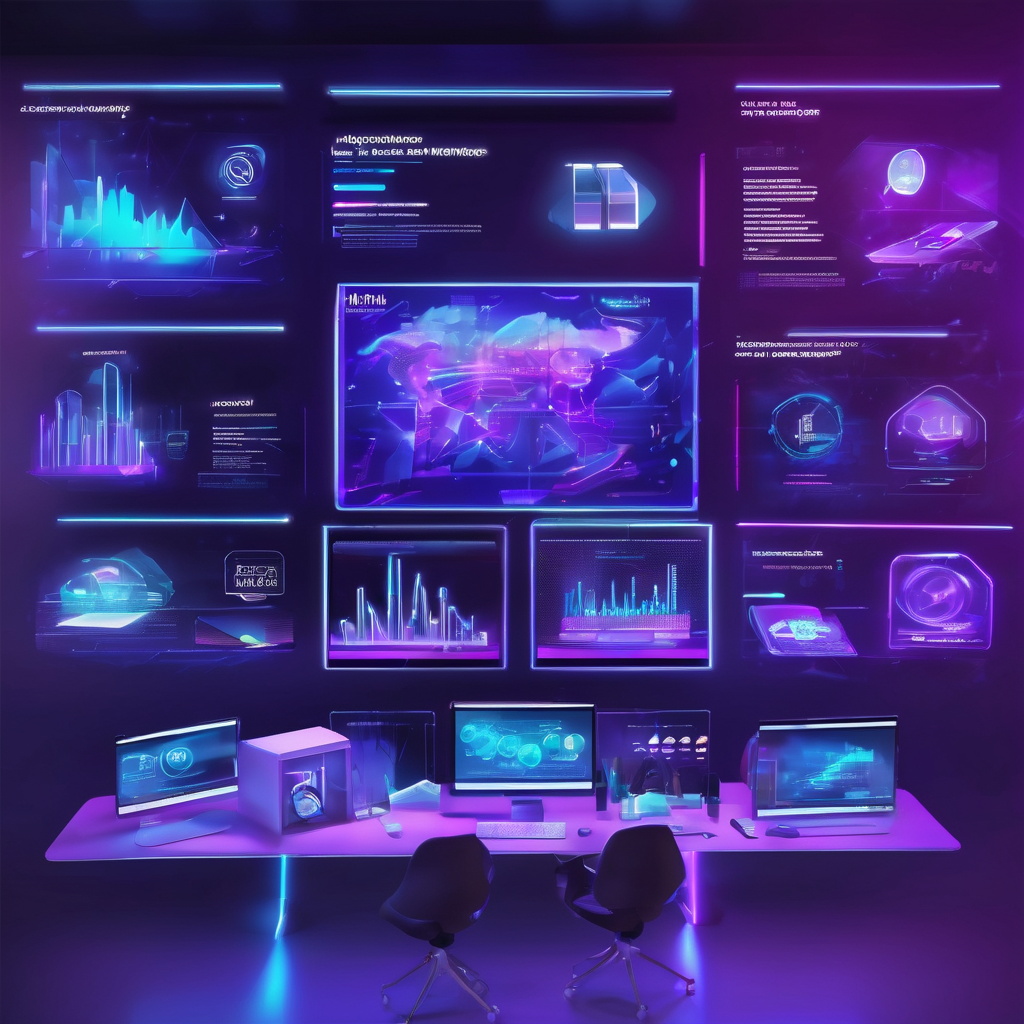
AI is revolutionizing news organizations by automating content creation and personalizing distribution. However, there are ethical concerns, credibility issues, and potential impacts on journalists' job security. Striking a balance between AI efficiency and human insight is crucial for the future of journalism. The use of AI in news organizations has rapidly transformed the industry. Algorithms that automate the writing process have sparked debates about the ethical implications and credibility of AI-generated content. Furthermore, AI is increasingly affecting the roles and job security of human journalists. The use of AI tools in research, content generation, and distribution allows newsrooms to keep up with their competitors. Machine learning and natural language processing enable journalists to track breaking news and trending topics from various sources. By analyzing large volumes of data, these algorithms can identify trends, provide context, and deliver deeper analysis. AI tools also assist in suggesting headlines, contributing imagery, and verifying the legitimacy of content. Additionally, speech-to-text tools enable quick transcription of interviews and events. AI algorithms can analyze data in seconds, enabling news agencies to create articles based on data and statistics. This ranges from templates and outlines to whole articles. This not only saves time but also allows for the publication of a higher number of articles, giving organizations a competitive advantage.
AI can also sort information into different categories, produce infographics and visualizations, and personalize content based on reader preferences. While AI tools improve efficiency, they present challenges for the future of journalism. One challenge is ethics and bias, as AI can replicate human biases and create echo chambers. News organizations must find ways to maintain diverse content delivery to expose users to different perspectives. AI algorithms also lack the ability to consider privacy nuances, raising concerns about violating privacy laws and ethical boundaries. The use of generative AI tools and large language models raises questions about transparency and attribution. It is important for news reporters to disclose whether AI is used in their work. Accuracy and context can also be compromised in AI-generated content, which may lead to the spread of false information. Additionally, AI tools can inadvertently produce plagiarized or unoriginal content, infringing on copyright laws. While AI streamlines news gathering and production processes, there are concerns about the potential deterioration of journalistic quality and job losses for human reporters. Some organizations have already downsized reporting teams in favor of AI tools. Going forward, journalists will need to adapt their workflows to incorporate AI tools and focus on producing unique insights, investigative reporting, and critical analysis that AI systems cannot replicate. In conclusion, the future of journalism will be shaped by AI algorithms. News organizations must effectively utilize AI tools while upholding ethical standards and ensuring factual accuracy. Human journalists will continue to play a crucial role in providing insightful commentary and maintaining journalistic values.
None


In the fast-changing world of digital marketing, AI-generated videos are revolutionizing how brands engage with consumers.

Alta, an Israeli technology company, is making notable advances in artificial intelligence through its innovative go-to-market platform tailored specifically for business-to-business (B2B) revenue teams.

The State Council Information Office recently announced a major advancement in artificial intelligence technology with the introduction of over 100 AI terminals, including AI mobile phones, AI computers, and AI glasses.

A recent LinkedIn study has revealed the substantial influence of artificial intelligence (AI) on the sales process.

As artificial intelligence (AI) continues to advance and become more deeply embedded in various digital marketing approaches, its impact on search engine optimization (SEO) has attracted considerable attention.

Predis.ai, a leading AI-based platform for social media content creation, has announced major expansions to its toolset, introducing new AI-powered features designed to improve content generation and scheduling for social media channels.

OpenAI has revealed major updates to its text-to-video app, Sora.
Launch your AI-powered team to automate Marketing, Sales & Growth

and get clients on autopilot — from social media and search engines. No ads needed
Begin getting your first leads today